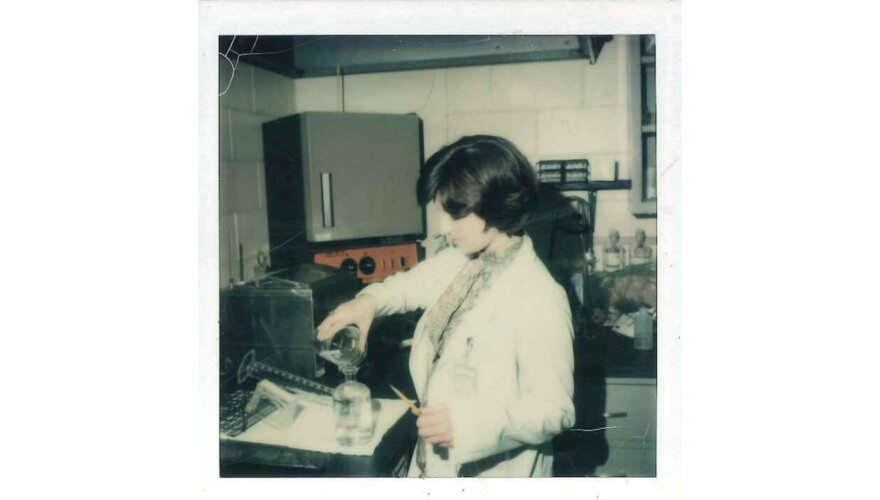The director of Virginia’s Department of Forensic Science said this week that allegations of misconduct at the state crime lab beginning in the 1970s and detailed in “Admissible: Shreds of Evidence” are under review.
The podcast, which was produced by VPM and Story Mechanics, follows the career of Mary Jane Burton. She was a serologist — a blood analysis expert — who worked at the lab several decades ago, before the advent of DNA testing. Burton kept clippings of evidence from crimes in her case files. In the 2000s, state officials used those clippings for DNA testing, leading to the exoneration of 13 people who’d been wrongfully imprisoned. Burton, who died in 1999, was hailed as a hero.
But “Admissible” reporters, including host Tessa Kramer, uncovered evidence suggesting Burton tampered with test results and ignored scientific protocol. The misconduct was carefully documented by Gina Demas, Burton’s former trainee, who attempted to get the lab’s leadership to address the problems as they occurred. One former lab director, Peter Marone, acknowledged in the podcast that the lab’s senior team knew it couldn’t be nationally accredited while Burton was still on staff. Burton ultimately left the lab in 1988 under unclear circumstances.

In July, after the series’ release, VPM provided the department with some of the documentation Demas kept that buttressed her allegations.
On Tuesday, members of the Forensic Science Board’s Scientific Advisory Committee — an oversight board consisting of outside experts — heard a rundown of the podcast from DFS staff. The committee and the FSB itself were set up in 2005, in the wake of a national audit that found flaws in the lab’s post-conviction work in the case of Earl Washington Jr. He was granted a pardon in 2000, by former Republican Gov. Jim Gilmore, and later won a $2 million civil suit that, among other charges, accused another lab serologist of altering results to help implicate Washington.
The committee's chair, Kathleen Corrado, said she’s still going through the information provided by VPM. Corrado didn’t commit to auditing the thousands of cases Burton worked on but said she’s taking the podcast’s findings seriously.
“The reason we're all here is because we would like to think … it needs to be reviewed and then go from there,” Corrado said.
The committee also heard from Robert Scanlon, a DFS forensic scientist who said he worked alongside Burton as a serologist. Scanlon stressed that when he arrived at the lab in 1982, there was no procedure manual. Lab notes were often skimpy and incomplete by today’s standards. Scanlon said some of Burton’s practices, like taping evidence to lab paperwork, were known to be problematic, even then.
“It's difficult to look back at some of these case files, and … you just kind of hit your head, like, ‘Oh, my goodness, this would never fly today,’” Scanlon said. “But at that time, you know, there was a lot of evolution to occur in forensic biology labs.”
The committee will consider further action when it meets again on Jan. 9.
Editor’s note: VPM News reporters Ben Paviour and Whittney Evans contributed to the podcast.



